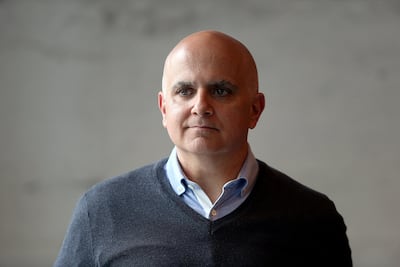The start-up scene leans too often toward hyperbole, but it is hard to overstate the importance of the Careem and Uber transaction. Certainly this is a lightning bolt to the rapidly rising technology scene in the Middle East, but I think it has global ramifications as well.
I should say, off the bat, that the hype around "unicorns" means less to me. There have been significant and impressive uprounds and exits in the region for years, if all but uncovered in the global press. I could argue that Aramex was, in fact, the region's first unicorn. And don't tell me a massive logistics company isn't a tech company. Try to imagine the stunning rise, for instance, in e-commerce in the region without it.
Today’s news, however, is no doubt a moment in history.
It has been conventional wisdom among my sisters and brothers in Silicon Valley that when an opportunity becomes so large in a rising market, it is inevitable that a US company will "platform out" and beat any local effort. For the past decade or so, Facebook, LinkedIn, Google and WhatsApp were the de facto winners in almost every market they entered, at least where they weren't blocked by local governments. As long as smart devices were ubiquitous, you had the capital, the data, the technology and the reliable brand – all one click away – how could anyone compete locally?
What Careem, Souq.com, Property Finder and many companies remind us – as we are seeing enormous enterprises being built in Latin America, South-East Asia and Africa – is that local enterprises matter. It is the understanding of market nuances, not only the regulatory and payments aspects, but how consumers want to engage with the products they want that has enabled local companies not to merely be "copy cats" but innovators for their markets on their own terms.
One of China's leading venture capitalists, Kai Fu Lee, reminds us of this in his must-read book AI Superpowers. Putting aside reasonable debate on business and trade practices, the juggernaut companies of that juggernaut nation simply have created – with rapid iteration – outstanding products and services for their customers.
Can we then assume a "one-size fits all" American tech company wins by just showing up anymore?
Uber is one of the most important tech companies today, and has changed millions of lives around the globe. In many rising markets, such as Mexico, they remain the force to reckon with. In other markets, like South-East Asia, they have decided to partner with and have a smaller stake in another of the top players there. Uber rarely acquires, and if so, with the greatest scrutiny.
Careem and the Middle East is a rare case. Careem not only built an outstanding business by many standards, they did so with the greatest sensitivity to its markets. They have become a model of how to build a culture of support. I'm not sure many know how aggressive they have been to offer the best in maternity leave and support the growth of women across their enterprise.
Read More
Uber agrees to buy Careem for $3.1 billion in biggest ever tech deal for region
WATCH: Uber acquires Careem in biggest ever tech deal for the Middle East
The ramifications for the outstanding Careem team, their dedicated "captains", the millions of people between Saudi Arabia to Pakistan who have safer, cleaner, more predictable, more courteous mobility, could not be more clear. Payments, food delivery, and more, are all in the offing. Uber has shown grit and determination amid all the speculation about its public offering, to swing big in a region whose new potential most people outside of it don't yet appreciate.
As an investor, not only am I encouraged by what this will mean for current valuations but the opportunity for entrepreneurs across the region to aim for the stars. We often refer to the "PayPal Effect" in the United States – when the rise, success and sale of PayPal lit up the imaginations of aspiring founders and launched hundreds of spin-offs from their own. Folks such as Max Levchin, Reid Hoffman, Elon Musk are among the familiar names of many entrepreneurs.
With the recent news, women and men across the region will say, “I will do this too”. They will think far bigger in their aspirations than they, or their parents, dreamt of a few years ago. And, mark my word, dozens of entrepreneurs will be spun from this great combination, all who have now seen how it is done.
As a personal note, I have been blessed to know and even mentor many in the Careem story, including the co-founders Mudassir Sheikha, Karl Magnus Olsson, and Abdulla Elyas. I hesitate to say "mentor" as I have no doubt learnt more from them over the years than the other way around. I knew from the first meeting that this team was world class, with all the brilliance, perseverance and willingness to learn, as I have seen anywhere. I have also known Uber chief executive Dara Khosrowshahi for nearly two decades. If there is a better chief executive with more integrity in Silicon Valley, I'am yet to meet her or him.
It's nice when the good guys have great outcomes. I wish them well, but I am more excited for what they have modelled for the next generation of start-ups rising across the Middle East and beyond.
Christopher Schroeder is the co-founder of Next Billion Ventures and author of Startup Rising: The Entrepreneurial Revolution Remaking the Middle East. You can follow him on Twitter @cmschroed.



